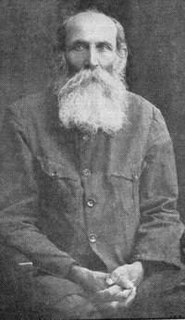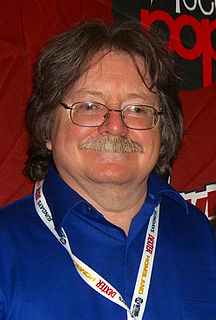A Quote by Ralph Waldo Emerson
Nature and books belong to the eyes that see them.
Related Quotes
Nature and books belong to the eyes that see them. It depends on the mood of the man, whether he shall see the sunset or the fine poem. There are always sunsets, and there is always genius; but only a few hours so serene that we can relish nature or criticism. The more or less depends on structure or temperament. Temperament is the iron wire on which the beads are strung. Of what use is fortune or talent to a cold and defective store?
Every person in the world is by nature a slave to sin. The world, by nature, is held in sin's grip. What a shock to our complacency- that everything of us by nature belongs to sin. Our silences belong to sin, our omissions belong to sin, our talents belong to sin, our actions belong to sin. Every facet of our personalities belong to sin; it own us and dominates us. We are its servants.
And when you, O human, will return to Nature, that day your eyes will open, you will stare straight into the eyes of Nature and in its mirror you will see your image. You will knowthat when you hid from Nature, you hid from yourselfWe who have been turned away from Nature - if we desire life, we must establish a new relationship with Nature.
I know a 'crime against nature' when I see one. It is usually a sign of crimes against nature that we cannot bear to see them at all, that we recoil and hide our eyes, and no one has ever cringed at the sight of a soybean factory. I also know phony arguments when I hear them--unbridled appetite passing itself off as altruism, and human arrogance in the guise of solemn 'duty.' We must, as C.S. Lewis advises, 'reject with detestation that covert propoganda for cruelty which tries to drive mercy out of the world by calling it names such as 'Humanitarianism' and 'Sentimentality.
There is a saying, 'Eyes are the windows to the soul.' It means, mostly, people can see through someone else by eye contact in seven seconds. I have a habit that if I meet someone I don't know, I'd like to look at her or his eyes on purpose. When my eyes lay on them, I can immediately see their true color.
On camera, the audience can see your eyes close up - they can see behind your eyes - and when you're on stage, you need to make sure that the person sitting in the back row can feel what's happening behind your eyes, even if they can't see them. Having a live audience is exhilarating and exciting all on its own, but you know, it is quite different.
It has always been my experience that, whatever groupings I choose for my books, the space in which I plan to lodge them necessarily reshapes my choice and, more important, in no time proves too small for them and forces me to change my arrangement. In a library, no empty shelf remains empty for long. Like Nature, libraries abhor a vacuum, and the problem of space is inherent in the very nature of any collection of books.








































